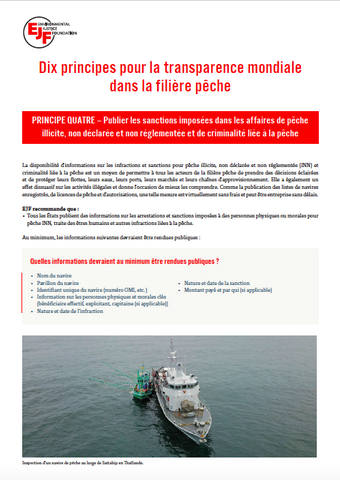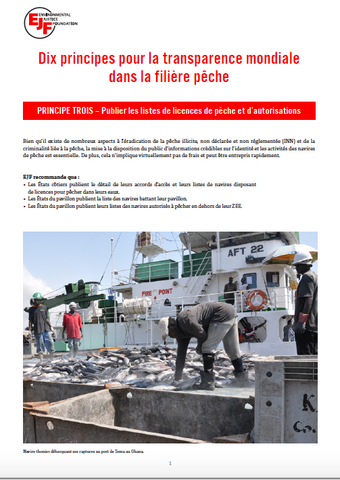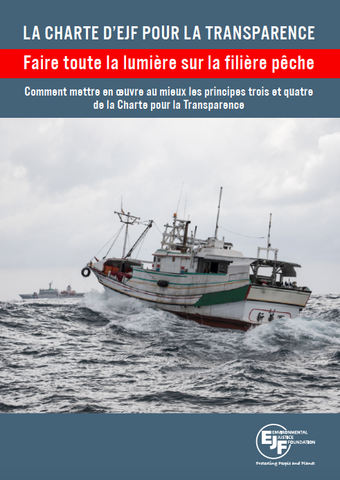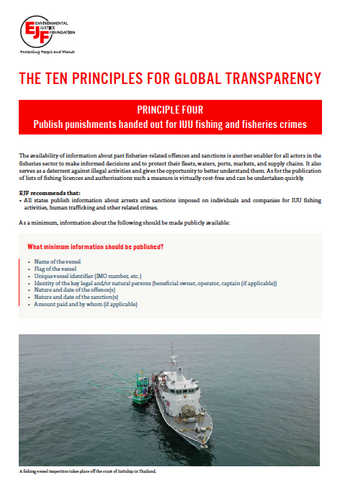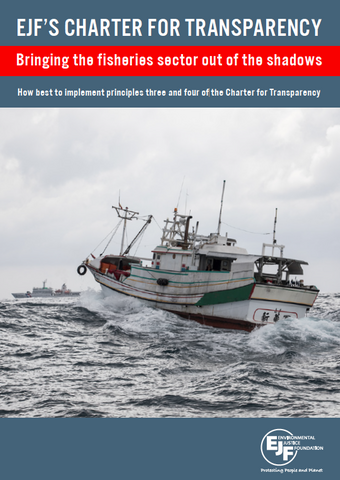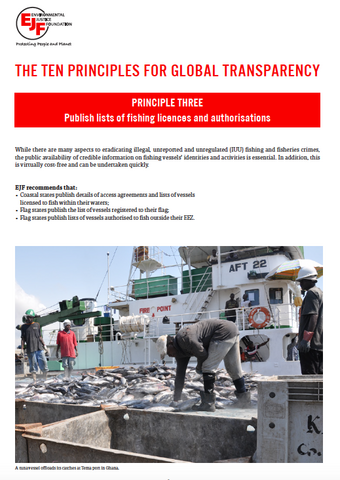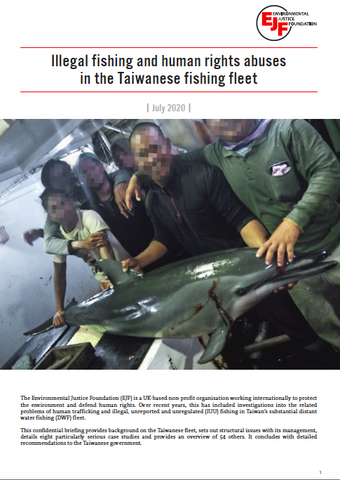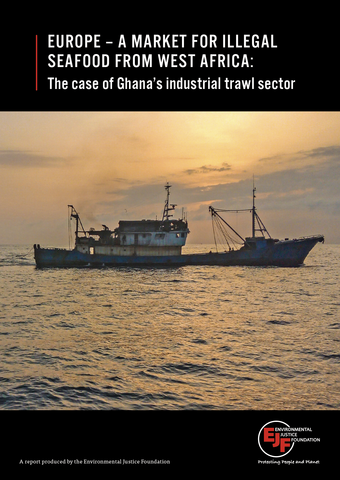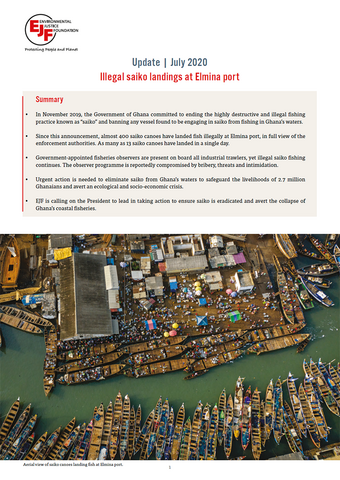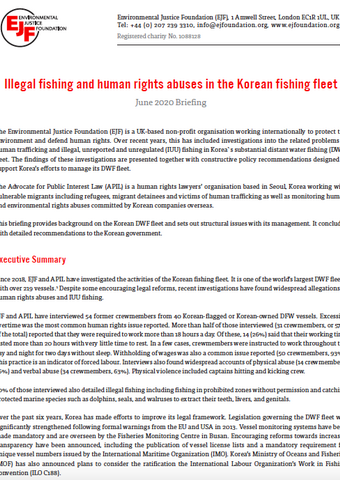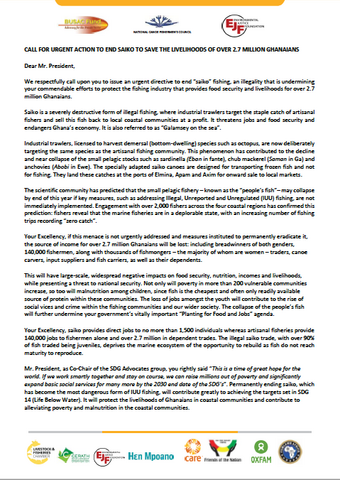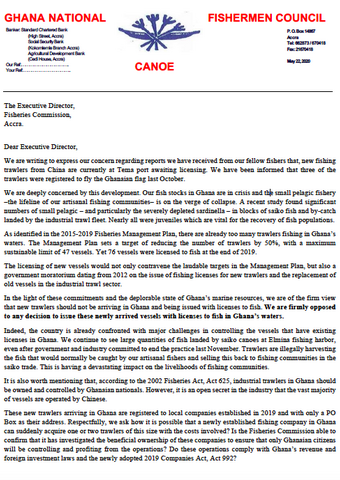Le quatrième principe pour la transparence : Fiche technique pour sa mise en œuvre: Cette note d’information technique s’intéresse à comment mettre en œuvre au mieux l’un des principes essentiels de la Charte d’EJF pour la Transparence: la publication des sanctions imposées dans les affaires de pêche illicite et de criminalité liée à la pêche.
Le troisième principe pour la transparence : Fiche technique pour sa mise en œuvre: Cette note d’information technique s’intéresse à comment mettre en œuvre au mieux l’un des principes essentiels de la Charte d’EJF pour la Transparence : la publication des listes de licences de pêche et d’autorisations.
Comment mettre en œuvre au mieux les principes trois et quatre de la Charte pour la Transparence: Ce rapport entend épauler les États dans l’application de deux principes essentiels de la Charte d’EJF pour la Transparence : la publication des listes de licences de pêche et d’autorisations et celle des sanctions imposées dans les affaires de pêche illicite et de criminalité liée à la pêche.
How best to implement principles three and four of the Charter for Transparency: This report helps states to implement two key principles of EJF’s Charter for Transparency: publishing lists of fishing licences and authorisations and publishing punishments handed out for illegal fishing and fisheries crimes.
Illegal saiko landings at Elmina port: In November 2019, the Government of Ghana committed to ending the highly destructive and illegal fishing practice known as “saiko”. Since this announcement, almost 400 saiko canoes have landed fish illegally at Elmina port. EJF is calling on the President to lead in taking action to ensure saiko is eradicated.
Open letter opposing new trawler licences from the Ghana National Canoe Fishermen Council: Ghana’s National Canoe Fishermen Council lays out its opposition to granting new trawlers licence to fish in Ghana's waters. Over capacity in the industrial fleet is threatening jobs and food security, it says.
